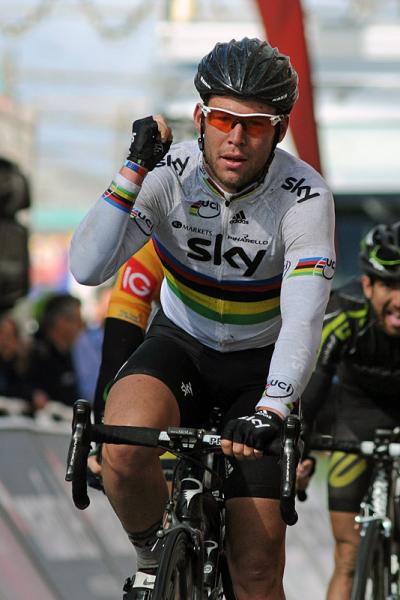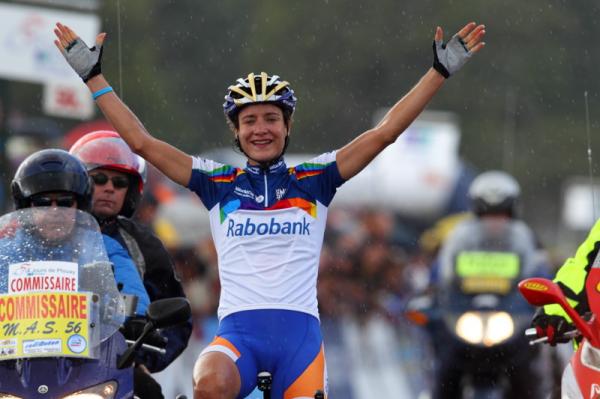Cavendish and Vos share advice with juniors
Junior congress held in conjunction with world championships


For the second year running, the UCI held a congress for all junior riders taking part in the UCI Road World Championships with the goal of introducing the world of racing at an amateur level and beyond.
Entitled "No Stress",two hours long and translated into six languages, the conference consisted of a series of informal chats between a presenter and representatives of different areas of the sport.
First up was commissaires, who revealed - amongst other things - that the most commonly broken rule in a race was defacing a race number (by cutting it out). Drafting behind vehicles is the most frequently misunderstood rule.
What followed was presentation of the media's role in the sport featuring Jacky Durand, after which came a section on frame construction. Curiously enough, in a vote amongst the audience, "safety" figured well below "comfort" and "weight" in their list of priorities when valuing a bike frame.
Rather dishearteningly, in the next section, was an introduction to the anti-doping fight under the title of "Prevention". When asked for reasons for taking nutritional supplements, only 31 percent of those who took part in an informal vote opted for stating simply: "I don't need them anyway."
The high point of the evening though, was the presence of Mark Cavendish and Marianne Vos, both of whom provided reams of advice about the juniors step up into the next category. They also discussed how to tackle the upcoming world championships races.
"Don't do a lot of different things [at the world championships], follow your normal training plans," said Vos. "Just do like you normally do, and race with pride and courage, and don't think of it as being any different or the pressure will be higher."
Get The Leadout Newsletter
The latest race content, interviews, features, reviews and expert buying guides, direct to your inbox!
"It's a big, big honour to race there and do your country proud," Cavendish said, "and if you've got a good leader, people will never forget you helped them win a world championships."
"But like Marianne said, don't change. It's a bike race, even if you could get a jersey and a medal at the end of it."
Cavendish then warned the juniors present that the transition to amateur ranks was by no means easy, saying, "just don't take it for granted. It's a big difference, there's a whole different style of racing, you can be racing against amateurs who are in their thirties."
"There's a big gap between junior and professional, and that's what amateur is. Like the Italian word for amateur, dilettante, suggests, it's a time of aspiring to that higher category.. But compared to juniors, amateur level is almost like another sport."
Cavendish said the hardest thing for him about switching to amateur had been adapting to the distances and the intensity of the higher level of racing. As a junior, it was more "just like a hobby," whereas in the higher category "you have to teach your body to resist a pounding for a few days. It's a higher workload, you're training longer."
It was almost inevitable that someone would ask him how he maintained himself at the top of the sprinting hierachy. Both Cavendish and Vos agreed the only solution for continued success was, as Cavendish put it, "never to sit back and admire what you've done. It's so easy just to settle for what you've done. It's the biggest mistake anyone can make, not just in sport."
"I know some pros, they were very good and won their first big race and then they were never the same again."
"Instead it's better to keep setting targets, always strive for more. You always need to keep pushing."
Speaking just three days before he has to defend to his 2011 world champion's jersey, Cavendish said, "It's been incredible to wear it for a year, and I've wanted to do it proud and prove why I've been worthy of it. It's been something that's inspired me."